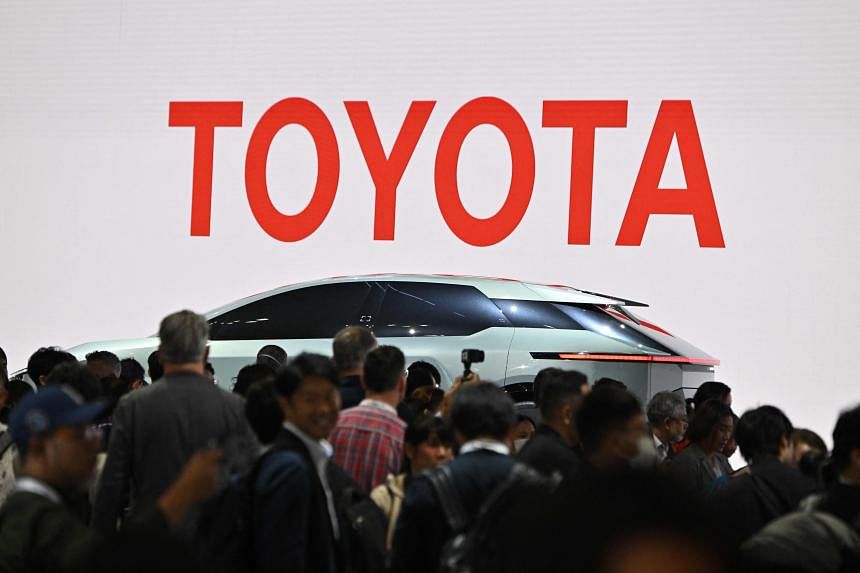TOKYO – Toyota Motor sold more passenger vehicles than any other company in 2023, cruising past Volkswagen to become the world’s top carmaker for a fourth consecutive year.
Global sales, including those of subsidiaries Daihatsu Motor and Hino Motors, rose 7.2 per cent from the previous year to a record 11.2 million cars in 2023, the company said on Jan 30.
Output, which refers to cars off the production line, grew 8.6 per cent to 11.5 million units. VW’s deliveries increased 12 per cent to 9.24 million units in 2023.
“Toyota has gone from struggling with supply chains last summer to selling whatever it makes,” Bloomberg Intelligence senior auto analyst Tatsuo Yoshida said.
Despite falling further behind in the global shift towards electric vehicles (EVs), recovering supply chains and steady demand in North America and Europe in 2023 helped Toyota boost production and rake in profits from abroad. Demand for hybrids at home meanwhile remains high and steady across most of the world.
While 2023’s full-year figures cement Toyota’s dominance, it was China’s BYD that arguably generated the most buzz last year when it surpassed entrepreneur Elon Musk’s Tesla as the world’s top maker of electric cars. Shenzhen-based BYD, which sells only EVs and plug-in hybrids, sold around 3.02 million units in 2023.
Toyota, by comparison, sold 104,018 battery EVs. Initially the Japanese carmaker aimed to sell 202,000 units during the fiscal year that ends in March, but lowered that goal to 123,000 in November 2023, citing issues of demand and supply.
Tesla delivered 1.81 million vehicles in 2023.
Toyota chief executive officer Koji Sato has promised the automaker will be able to sell 1.5 million battery EVs annually by 2026, and 3.5 million by 2030.
On Jan 29, the carmaker suspended shipments of 10 models after an internal investigation revealed that one of its suppliers, Toyota Industries, had been manipulating test results to gain certification for its vehicles.
The revelations piled onto a scandal that emerged in December 2023, after unit Daihatsu, which sells and supplies popular lightweight trucks, was found to have manipulated collision safety test results dating back as far as 1989.
While the impact and financial burden of the fraudulent conduct is only just beginning to take shape, Toyota has said it will step in should Daihatsu struggle to compensate its suppliers and business partners while production is partially suspended and vehicle are recalled.
Toyota chairman Akio Toyoda – who said in January that EVs will at most reach a 30 per cent market share – is scheduled to speak with reporters on Jan 30 on his vision for the future of the group.
Daihatsu was ordered by Japan’s transport ministry to put forward countermeasures by mid-February to prevent a repeat of such a thing happening again. Toyota has also said it will announce a new structure, though it did not clarify what that meant.
Separately on Jan 30, Honda Motor said its worldwide output increased 8.2 per cent to 4.2 million cars, despite a poor performance in Asia. The automaker’s annual sales rose 5.6 per cent to about 4 million units, growing for the first time in seven years on strong pent-up demand in the US.
Nissan Motor, meanwhile, said global output jumped about 6 per cent to 3.4 million vehicles, although the company is struggling in China. BLOOMBERG

